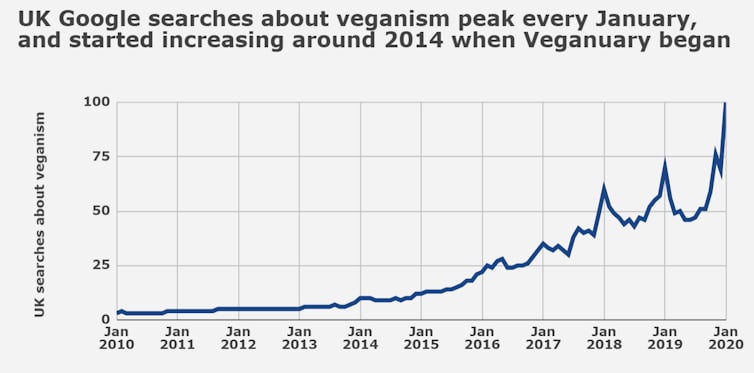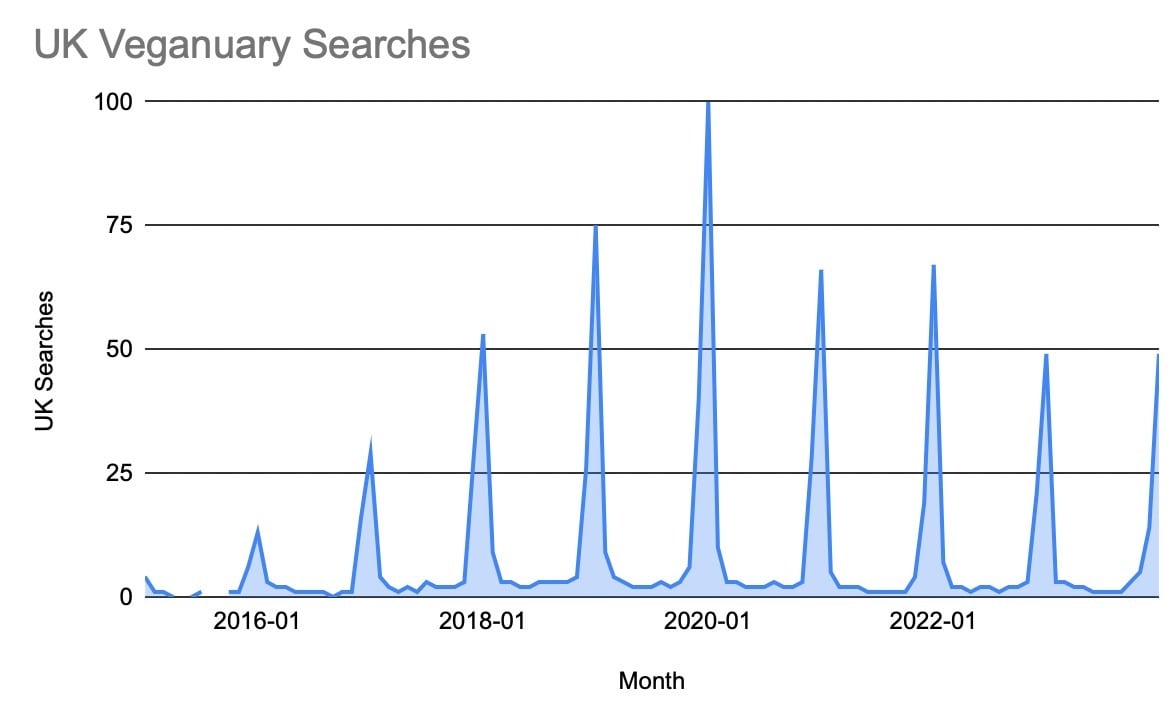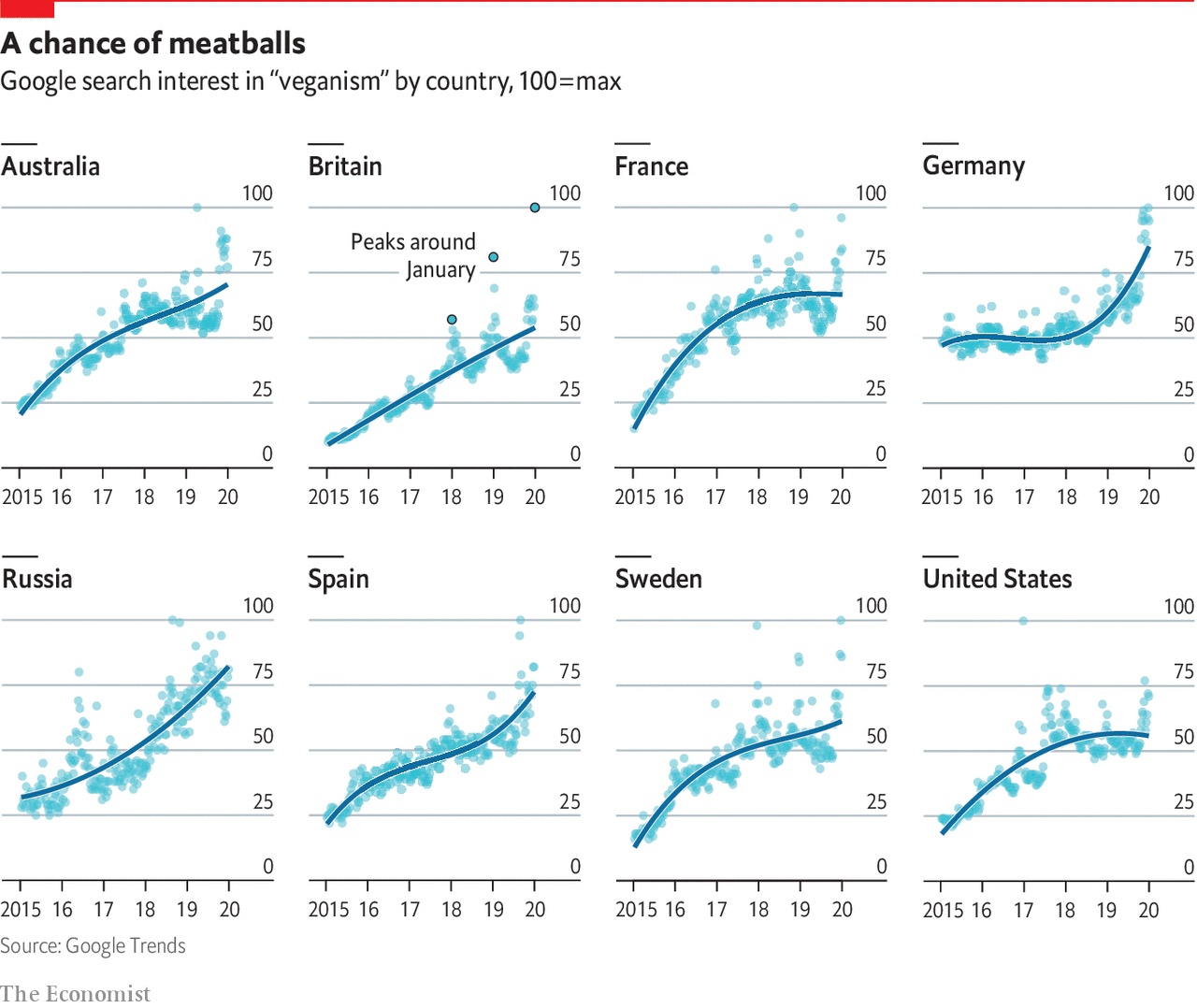For people short on time (like me), I’ll point out this article brief, highly skimmable, and full of self-explanatory graphs. It also briefly explains reasons the researchers think Veganuary succeeds where similar efforts have failed (i.e., the time of year and social experience).
At first glance, the evidence presented here seems quite impressive for near-term reductions in animal product consumption. However, it may not be as impactful as it initially seems (see the comments on this post).
To the extent that it is effective, I’m unsure whether it indicates significant moral circle expansion because many participants may already include farmed animals in their moral circle, meaning they aren’t expanding their moral circle, but instead accepting the implications of their moral circle (which may be a distinction without a difference, as both produce equally-good long-term consequences).




Thanks for sharing!
Personal highlight: "When Veganuary asked participants about their number one motivation for taking part, 18% said the environment, and 21% said their health – but 40% said animal welfare." I think I would have estimated something more like 25% animal welfare.
Yeah I was guessing more like 40:35:15:10 environment:health:welfare:other for UK in general, but that Veganuary had probably been pushing more welfare-heavy messaging so were getting a higher proportion of welfare folks, but still didn't expect twice environment/health :)